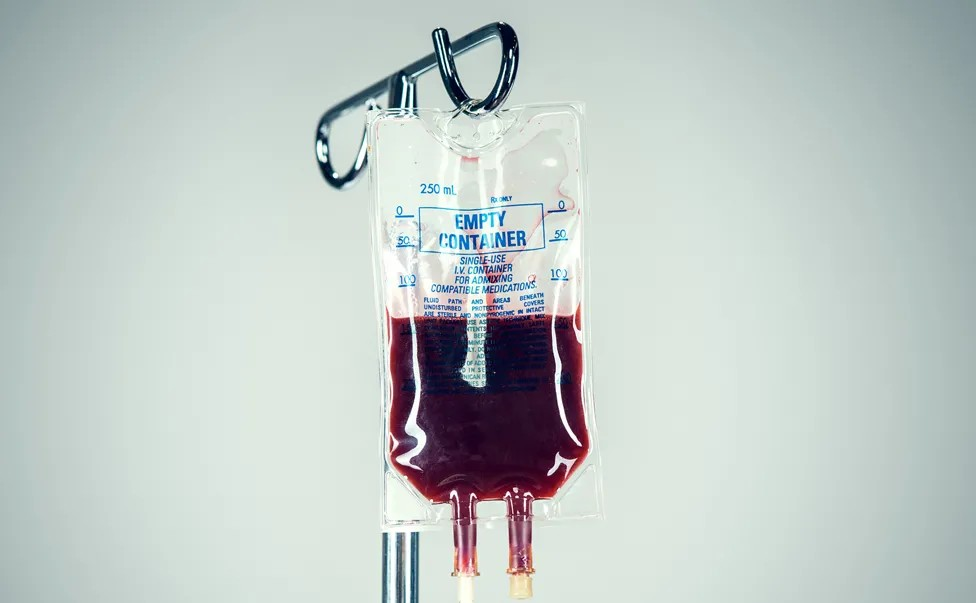Infected blood fight goes on, say boy's parents
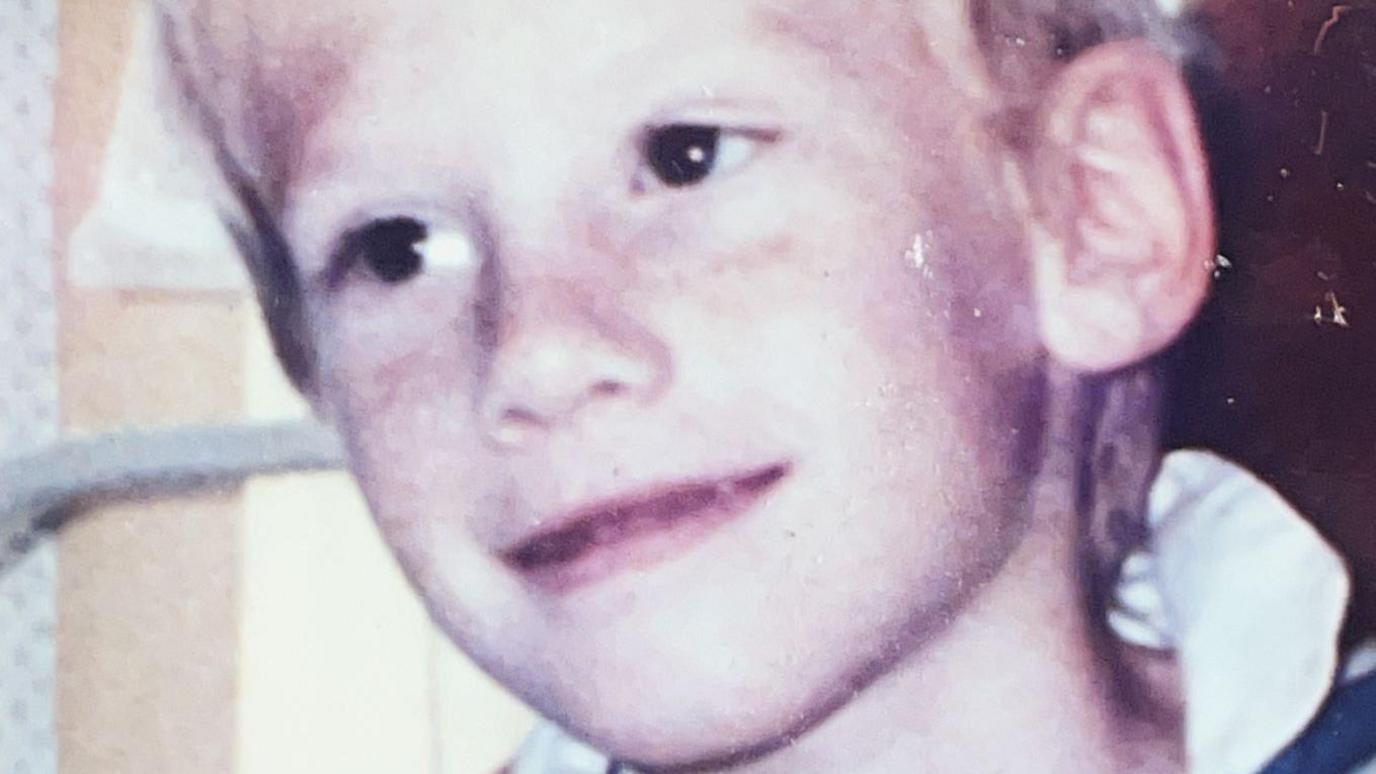
Colin Smith was seven years old when he died after contracting Aids from infected blood
- Published
The parents of a seven-year-old boy who died after contracting Aids from contaminated blood have said they are not done fighting.
Colin Smith was one of more than 30,000 people in the UK infected with HIV and hepatitis C by contaminated blood products in the 1970s and 1980s. He died in 1990.
A public inquiry has described the scale of the scandal as "horrifying" and accused doctors, the government and NHS of repeatedly failing patients.
"We've still got a bit of fight in us to make sure they don't renege on their promises," said Colin's father, also named Colin.
Infected blood: Nieces of victim relieved at report's findings
The UK government said a final compensation scheme was being set up and some victims would receive interim payments of £210,000 from this summer onwards.
However, the government in Westminster is still to flesh out how the siblings, parents and children would be recompensed.
The Welsh government has said it welcomes further compensation for those affected.
Mum still feels guilt for son's infected blood death
- Published20 May 2024
At a glance: Infected blood inquiry's key findings
- Published20 May 2024
Colin's parents, from Newport, both said they felt somewhat "flat" after decades of fighting for the truth to come out.
Colin's mum, Janet Smith, said: "The first thing we've done this morning is get a load of flowers, head up the cemetery, and said 'you’ve done it, Colin you’ve done it'.
“I just broke down, I found it really, really difficult."
Colin was just 10 months old when he was infected with HIV and hepatitis C in August 1983 after being given blood products imported from the US.
Mr Smith said: "We are vindicated on everything that we’ve been shouting from the rooftops - 34 years for myself, 40 years plus for others.
"We’re not losing the plot, we were right."
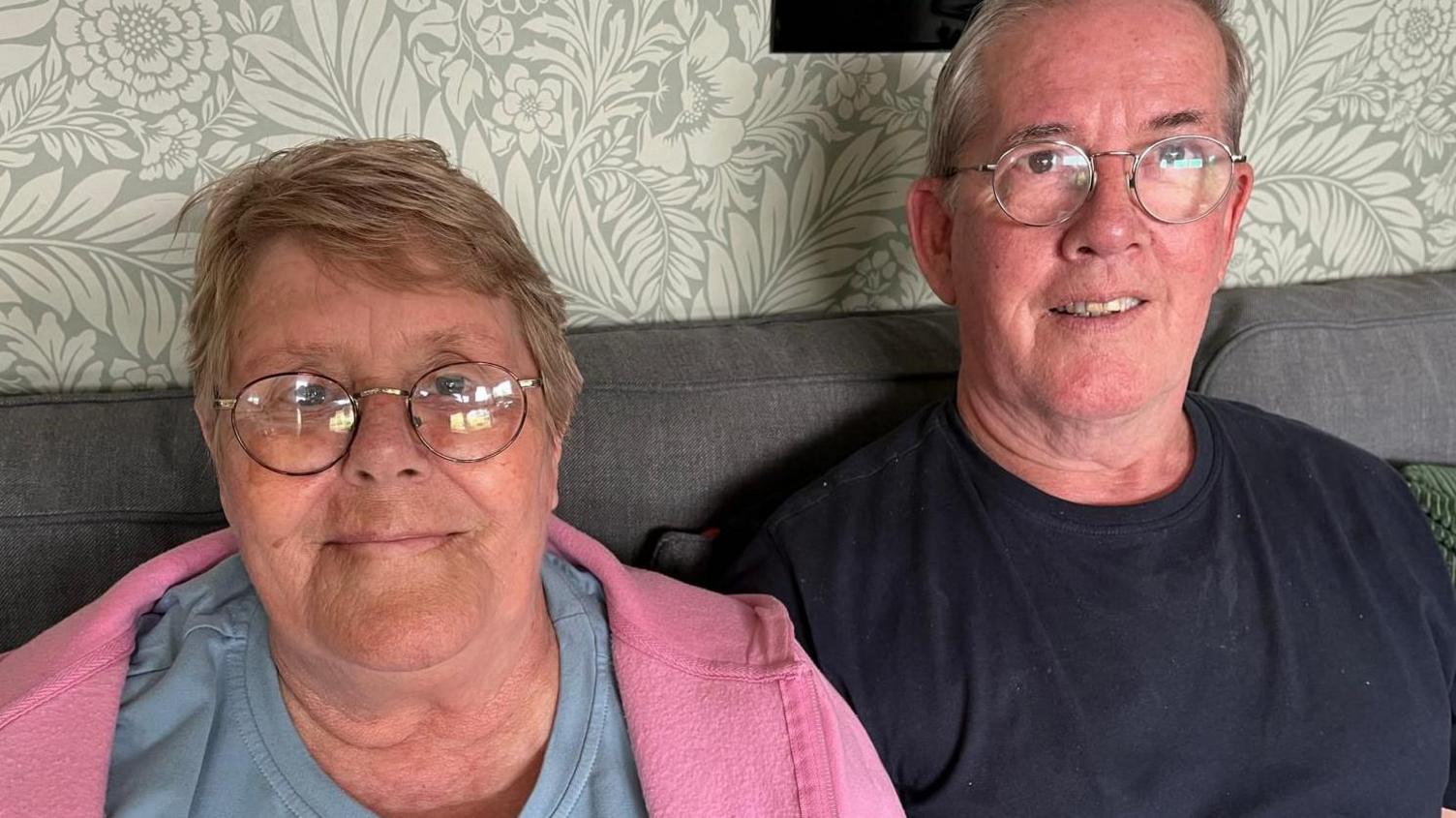
Janet and Colin Smith said they feel relieved after decades of fighting
Colin's parents were told he had HIV just before his second birthday after he was diagnosed with haemophilia when he was 10 months old.
"He had a real rough four or five years and he died a horrific death at the age of seven," said Mr Smith.
Mrs Smith added: "We thought it was an accident, but when it all came out and we realised it wasn’t an accident, we have done nothing but fight ever since.
"We want recognition, and yesterday was the first time in 34 years that I think we got recognition and an apology."
She said an interim payment being made to those that had been infected was "wonderful" but added she had not heard anything about payments for victims' relatives.
"I don’t know where it’s gone. As far as I’m concerned it’s gone by the wayside again, it worries me sometimes we’re going to have another fight.”
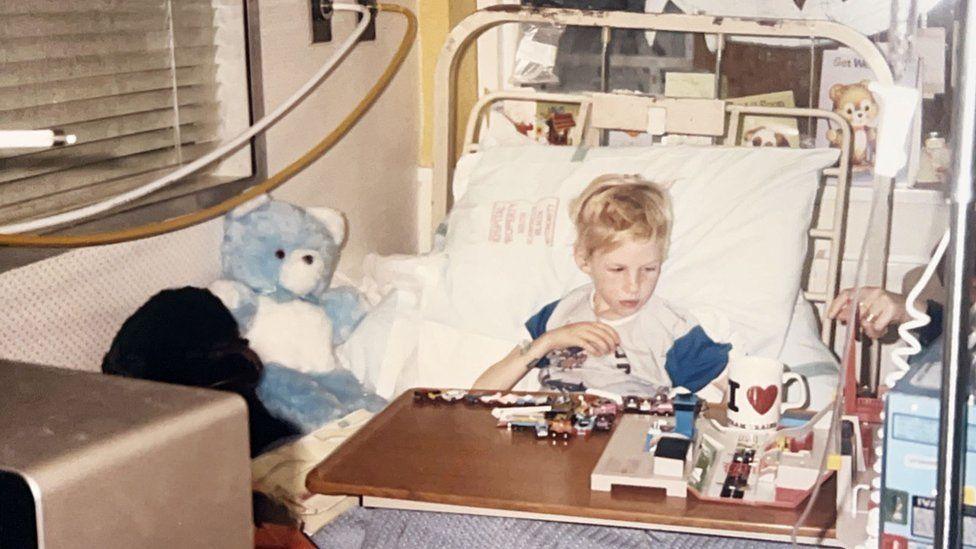
Colin died aged seven after being diagnosed with Aids
After the inquiry's report was released on Monday, Mr Smith added he felt "hyped up" after decades of fight.
"I feel a bit flat today," he said, "I think it's relief".
"Hopefully, things will change for everybody, because if we let them get away with it or they'll just carry on doing it.
"If they'd have stopped this sooner, hundreds - no thousands - of people would still be alive today, thousands of people wouldn't be infected."
Ms Smith added the impact of Colin’s illness was that she "lost her other sons as well".
"Because we were looking after Colin - I had three other sons and they lost their mum and dad. It’s time for me to go back to them."
She said she wanted to take her other sons on holiday with any compensation she received.
"My sons are so good, they take us on holiday, I just want to take them on holiday. Colin would love it too... I know he would."
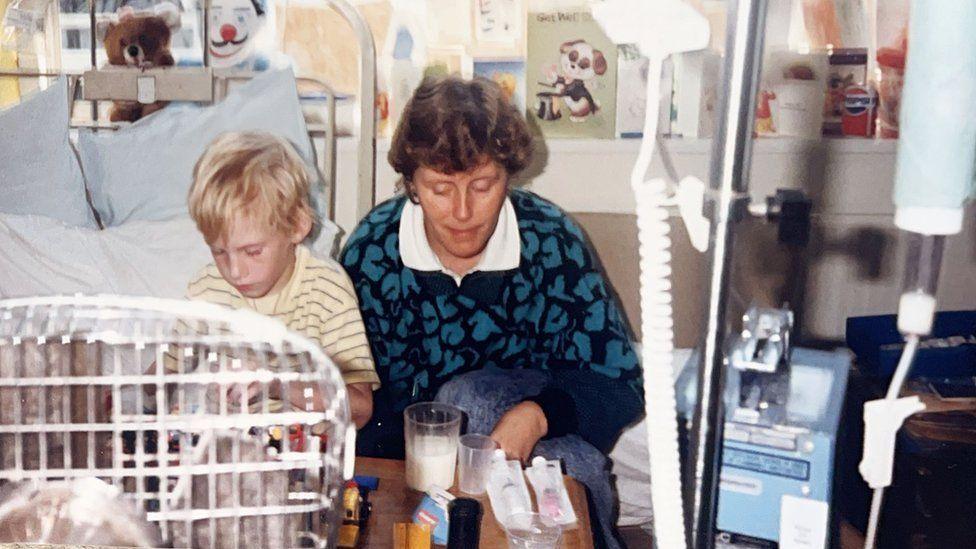
Janet Smith said Colin's illness meant her other sons missed out on time with their parents
While Mr Smith he hoped he was able to take his foot off the pedal slightly, he said he wanted to be sure the can wouldn't be "kicked down the road again".
"I'm not going to sit on my hind legs and hope they come to me, we're going to keep track of them and keep the pressure on."
The Welsh government said: “We welcome the announcement on the further interim compensation payment.
"Together with the Wales Infected Blood Support Scheme, we will work towards facilitating the payments."
Related topics
https://www.bbc.co.uk/news/health-69037200
- Published22 October 2022
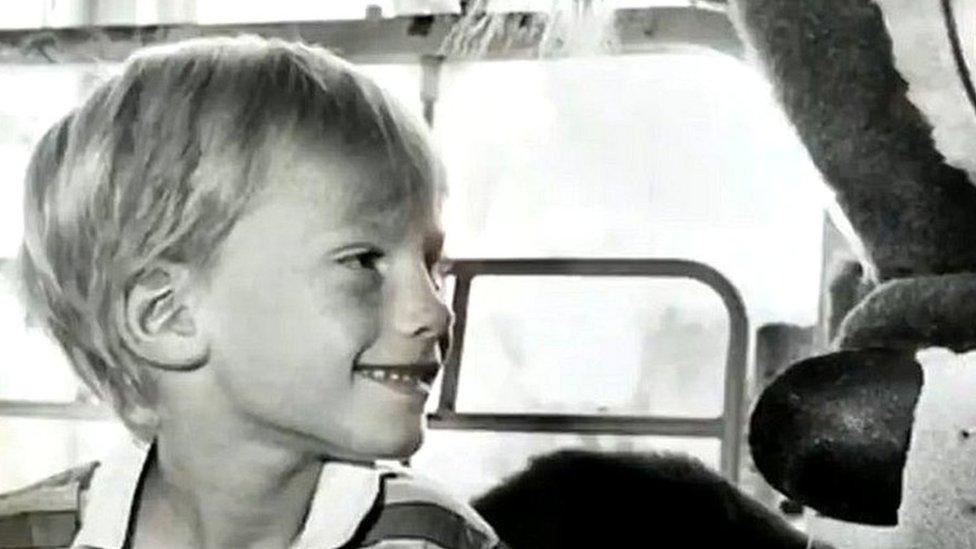
- Published21 May 2024
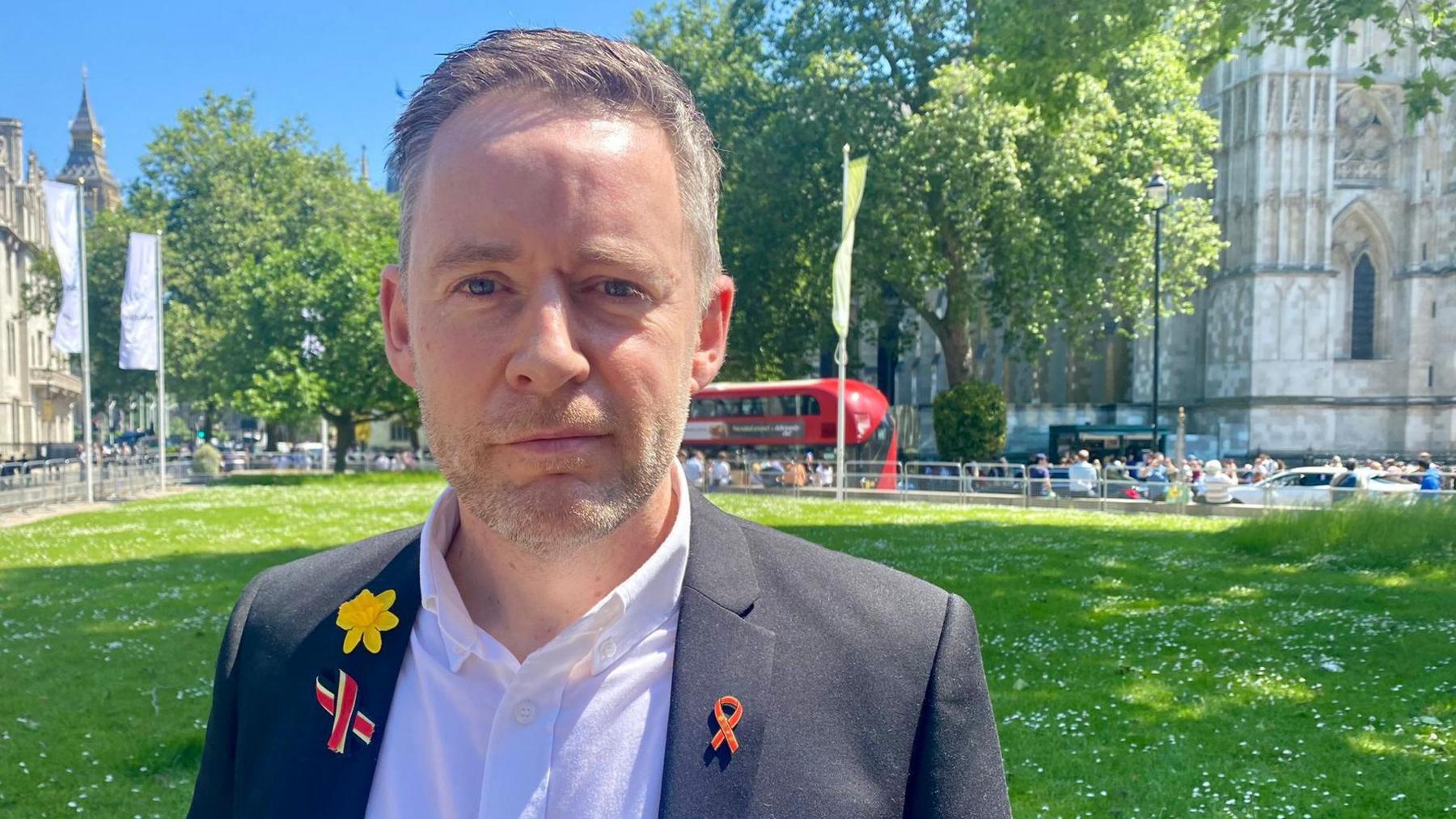
- Published20 May 2024
